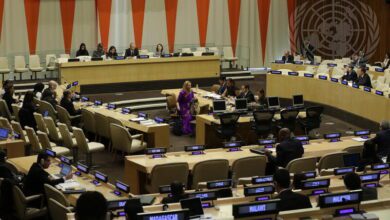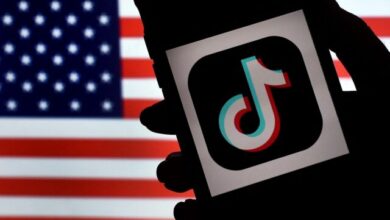OPINION: NIN, SIM Card Linkage And Horrors Of Banditry

The horrors are everywhere and scary so much now that people discuss them in subdued tones. Both in the city Centres and rural communities, no one can completely claim immunity.
A former Director, Department of State Service (DSS), Mike Ejiofor who had consistently kicked against ransom payments by victims of kidnappings while he was in service was quoted in a report a few days ago, that until he became a victim, he didn’t realize how deep and deadly these bandits were.
By last weekend, these deadly gangsters had increased the tempo of their games when they hijacked two vehicles owned by two transporters, ABC Limited and God Is Good Transport and Logistics around Kogi Axis. They were on their way from Enugu and Umuahia enroute, Abuja. The victims are still herded in some deadly forests In Kogi state.
In Kwara State, a traditional ruler was kidnapped with his wife and others. Even before negotiations for ransom began, they had killed the traditional ruler, and his wife was still held captive.
In Ekiti State, two traditional rulers lost their lives in gory circumstances to kidnappers.
A day after that, school children and their teachers were also abducted in the same Ekiti and while negotiations for ransom went on, the driver of the school bus was gruesomely killed.
Though the kids and teachers were released almost a week after, the horrifying experience will remain with these innocent kids for a very long time to come. The tales are too many to relive here for now.
And in the face of increasing banditry, and kidnapping activities around the country especially including the upsurge in the Federal Capital Territory (FCT) and environs, former Communications and Digital Economy Minister, Isa Pantami recently expressed his worries that security agencies were yet to take advantage of the integration of Subscriber Identification Module(SIM) card to the National Identity Number(NIN) to apprehend bandits and kidnappers who make calls to victims family members for ransom.
Indeed, Pantami is qualified to raise questions and concerns in this regard because he was the one who initiated the process of integration through the National Identity Management Commission(NIMC) and the Nigerian Communications Commission (NCC).
And despite the nightmares Nigerians went through during that integration, it was worth the troubles and Pantami knew, that is why he is worried today that the process had yielded no significant change to the activities of banditry and kidnappings.
A Presidential aide had raised the alarm in a tweet about the rising incidents of kidnappings and sought for more legislations to contain this scourge.
But In his reaction to the tweet, Pantami blamed security agencies for not utilising the NIN-SIM data to tackle rising kidnappings and banditry for ransom.
“NIN-SIM policy has been working,” said Pantami.
“However, the relevant institutions fighting criminality are to be requested to ensure they utilise it effectively when a crime is committed” the former Minister was quoted as saying.
“Lack of utilising it is the main problem, not the policy,” he explained.
In his lamentation, Pantami said
“If it is not being utilised by the relevant institutions in charge of securing lives and property, then I am more frustrated than any person, as I sacrificed my life and ignored all the threats to my life. This is just a point out of 100 on the policy,” the former minister added.
He championed the NIN registration policy under Buhari’s administration saying that “linking citizens’ NIN to their SIMs would be a crucial tool in combating banditry, kidnapping, and phone-related crimes.”
Pantami was reported to have allegedly raised a platform to solicit funds to free some victims abducted in the FCT recently.
Although there was a backlash on his actions in this regard, the former Minister who was likened to a god by agencies and industry players during his reign didn’t care what opinions society held about him.
Incumbent Minister, of Communications, Innovation and Digital Economy, Bosun Tijani thinks the NIN-SIM card linkage will indeed make a difference when he appeared on ARISE NEWS Channels, at the just concluded World Economic Forum (WEF) in Davos, Switzerland, saying “the process of NIN registration and linkage has turned out to be a painful exercise, but the benefits are numerous to the citizens and the Nigerian economy.”
The process he said “will help government to provide digital services to the people, and it will offer citizens the opportunity to access such digital services that will be provided by the government. It will also help the government to maintain a high level of security across the country. Government had since realised that most databases are in silos and operate independent of each other, but with the successful linkage of NIN with registered SIM cards, the government will be able to provide a single database of all Nigerians, from where information could be easily accessed and processed in real-time.”
According to him, the government is planning to establish a Digital Public Infrastructure (DPI), which will allow the government to manage and share data.
“With the Digital Public Infrastructure, the Presidency and the Office of the National Security Adviser can sit in their offices and monitor in real-time, what is going on around the country, with support from emerging technologies like Artificial Intelligence (AI), Big Data Analytics and Internet of Things (I0Ts),” Tijani said.
The NCC said in December 2023 that any SIM card not linked properly to a NIN of the same identity will be disconnected from the mobile networks by February 28, 2024.
When it appeared on the Nigerian Exchange (NGX) recently, MTN confirmed the position saying the commission’s latest directive, “is part of an industry-wide directive that requires phone lines for which the subscribers have not submitted their NINs to be barred on or before February 28, 2024”.
“With regard to NINs that have been submitted but not verified, such lines are to be barred on or before March 29,2024”
“Similarly, where less than five lines are linked to an unverified NIN, such lines are to be barred on or before April 15,2024. All affected subscribers must be verified (biometrics and biodata) before their lines are unbarred.
This position is a follow-up to the NCC’s directive on April 4,2022 requiring operators to restrict outgoing calls (one-way barring) for subscribers whose lines are not associated with NINs.
Operators are further engaging the affected subscribers through all channels to encourage them to submit their NINs for verification.
But the NCC threw more light on this last week when it offered explanations for the current situation where already registered SIM cards are disabled and disconnected from mobile networks.
NCC Director,in charge of Compliance,Monitoring and Enforcement (DCME) Efosa Idehen, explained that “duplicated NINs are responsible for the new wave of complaints from subscribers who have had their SIMs barred despite linking them to them.”
He said the development is due to the activities of third-party agents who duplicate NINs for unsuspecting telecom subscribers for a fee.
“On already registered SIMs and NIN, the issue is that some of those SIMs were registered with duplicated NINs.”
Idehen explained that “when an audit of the system was carried out, actual owners of the NINs reclaim them.”
“We have a lot of things that people do within the industry, especially SIM-NIN linkage for money purposes.”
“Yes, people register their SIMs and try to link their NINs but the agents doing those registrations do a lot of damage”adding that the NCC has seen these and want to correct them .
“We want a situation where when people say they are the owners of their SIMs, there is no doubt,” the NCC official said.
Millions of subscribers have had their lines barred and subjected to some form of headaches trying to visit service Centres of telcos to reverify their lines by going through biometrics and face identification..
Industry players have raised strong allegations that alleged criminal elements may have hijacked NIN registration and SIM card integration with the aid of some staffers of the NIMC who engage in duplicating the NIN of some persons linking telecom subscribers’ lines being barred despite linking their lines to NIN.
“A majority of the affected subscribers say they have long linked their SIM to their NIN, but were being asked to do so again, and they didn’t understand why this should happen.” an industry player lamented.
Although,officials of NIMC have exonerated the Commission from wrong doings and blaming third party engagement,they are equally worried why the commission should even engage them (third party).
Executive Vice Chairman of the NCC,Aminu Maida, explained that “We want to protect the integrity of our mobile numbers. When we don’t use it for a while, it has to be recycled and this exposes people to fraud.”
Maida further noted that the NCC is set to roll out consequences to deter its growth.
“We want to create more awareness about this so that people can understand that there is a window during which if they do not use their line, it can be allocated to another person.”
“People are using mobile numbers for a lot of frauds today and this is because there are no consequences.We are coming up with a regulation that will make sure there is a consequence for using your mobile for fraud.”
The National Identity Number (NIN) is a crucial identifier for citizens and legal residents in Nigeria. Issued by the National Identity Management Commission (NIMC), the NIN is a unique number that links individuals to their biometric data and personal details within the National Identity Database. It serves as a reliable tool for identity verification and authentication, ensuring that all records concerning an individual are accurately consolidated.
For ease of identification, each citizen and lawful resident of Nigeria is given a unique National Identification Number (NIN). The process of connecting your NIN to your phone number is meant to give subscribers a way to authenticate and protect their phone numbers as well as their identities.
It is mandatory in Nigeria to link NIN with SIM card.
All affected subscribers are required to undergo verification (biometrics and biodata) before their lines can be unbarred.
The impact of this new directive extends beyond individual subscribers, potentially influencing the broader telecom landscape.
Industry players anticipate a surge in registrations at NIMC enrollment centers as individuals rush to meet the impending deadlines. Telecom operators are closely monitoring the situation and are expected to provide updates on progress and challenges as the February 28 deadline approaches.
Moreover, there is growing scrutiny on the efficacy of the National Identity Management system and its role in streamlining processes for both subscribers and telecom operators.
Analysts say “as the deactivation deadline looms, stakeholders are emphasising the importance of seamless verification procedures to minimise disruptions and ensure a more efficient compliance process for subscribers nationwide.”
The Association of Licensed Telecoms Operators of Nigeria (ALTON) has pleaded with telephone subscribers in the country not to wait till the time elapses.
In a statement made available to journalists and signed by the Chairman, Gbenga Adebayo and Executive Secretary, Gbolahan Awonuga, said despite the limited service restriction, millions of subscribers were yet to submit their NINs for verification.
“The importance of the NIN cannot be overemphasized. It is crucial for a reliable and sustainable National Identity Management System in Nigeria. It enables economic inclusion and access to government services and helps address security concerns. Supporting the NIN initiative is necessary for a thriving digital economy and building a safer society. Therefore, our members are committed to implementing the directive as law-abiding corporate citizens who are highly supportive of the government’s objective to build a digital economy,” ALTON stated.
The telecoms body appealed to subscribers to enrol for NINs or submit their NINs through the appropriate channel advertised by members to avoid full suspension of services by the set deadlines.






